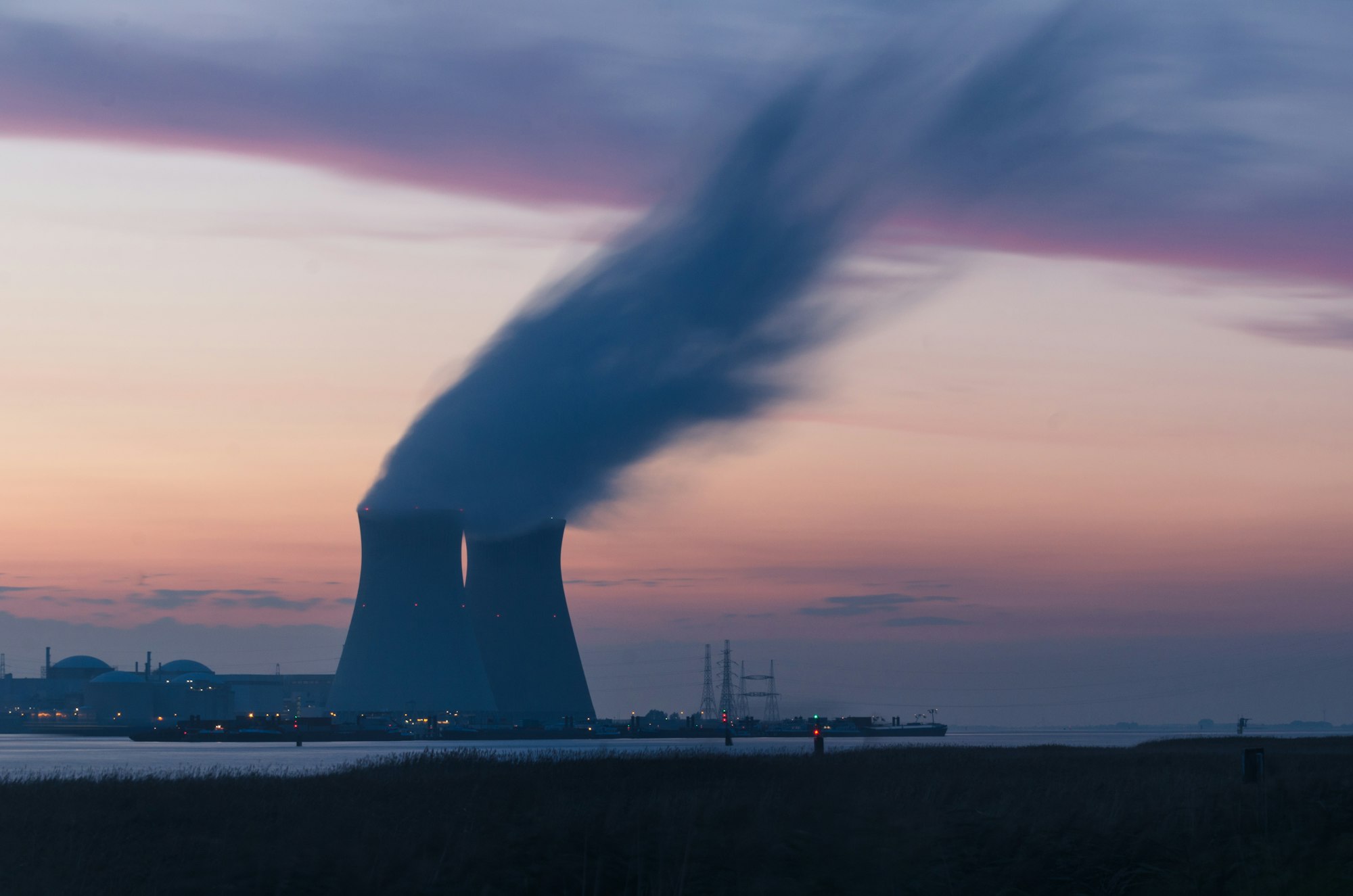Five reasons Australia's green hydrogen dream has foundered
Several big green hydrogen projects have been shelved. An expert explains why Australia’s sky-high ambition for the industry is struggling to reach fruition.
Opposition Leader Peter Dutton is set to unveil the cost of a controversial nuclear power plan should the coalition come to power at the federal election.

By Dominic Giannini
The coalition is promising to bring down electricity bills by adding nuclear power to the mix but clean energy groups say it's more expensive than renewables.
A $330 billion nuclear energy plan has been criticised by clean energy groups, who are calling the coalition policy a pipedream and a recipe for more expensive bills.
Wind and solar will make up 49 per cent of Australia's power grid by 2050, nuclear 38 per cent, hydro and pumped hydro nine per cent and storage four per cent under the opposition blueprint.
"What it says to Australians is we have a plan which is a sensible mix of energy sources," leader Peter Dutton told reporters in Brisbane during a 40-minute press conference where neither the cost nor energy mix was mentioned.
Mr Dutton promised cheaper power long term but didn't outline a near-term plan after saying bringing down prices was a priority.
There was no price modelling for power bills.
The issue is politically fraught after Labor pledged to lower electricity bills by $275 by 2025 in opposition which the coalition seized on as bills went up.
Coal and gas-fired power plants will stay open longer under the plan, a move criticised as bad for Australia's carbon emissions and unreliable for the energy grid.
Coal stations couldn't shut down prematurely if Australia wanted to keep the lights on, opposition energy spokesman Ted O'Brien said.
"We need to get prices down, that means we need to pour more gas into the system," he added.
But ageing coal-fired plants are already facing daily outages and extending them would be "a recipe for blackouts", Energy Minister Chris Bowen said.
The coalition's plan would slow the rollout of low-cost renewable energy, which is set to hit 48 per cent by the end of 2025, the Clean Energy Council said.
The nuclear plan was also opposed by unions, with ACTU president Michele O'Neil calling it "a radioactive distraction that is too slow, too dangerous and way too expensive for working people to afford".
The first of the seven publicly-owned nuclear plants would come into operation by the mid-2030s, Mr Dutton said, but this timeline has been rubbished by some experts.
Labor's plan is to have the grid firmed by just over 80 per cent renewable energy by 2030 and gas is being used as a backup during the rollout.

An excessive reliance on renewables "is going to cause a lot of grief to the country", Mr Dutton said.
Nuclear energy would provide the "always-on" power to back up renewables and lead to cheaper power bills in the long run, he claimed.
But nuclear energy does not offer a good deal for Australia, a report released ahead of Mr Dutton unveiling his costings found, while postponing coal power station closures would heighten Australia's carbon emissions in the medium term.
For the seventh straight year, the GenCost 2024-25 Report found renewable energy sources are the cheapest of any new-build electricity-generating technology.
Nuclear energy generation would be up to twice as expensive as large-scale solar, according to the analysis by the national science agency CSIRO and Australian Energy Market Operator.
The coalition's plan was modelled by private sector consultancy Frontier Economics, which also cost Labor's transition around $600 billion.
Mr Bowen dismissed this number, saying the government plan would cost $122 billion, citing a forecast by the national energy grid operator.
The coalition is pushing for an end to Australia's nuclear ban but has faced opposition from states.
Nuclear power doesn't stack up for Australian families or businesses, Fortescue chairman Andrew Forrest said on Friday.
"As our national science agency has shown, 'firmed' solar and wind are the cheapest new electricity options for all Australians," he said.
All the info and a bit of comment on WA energy and climate every Friday